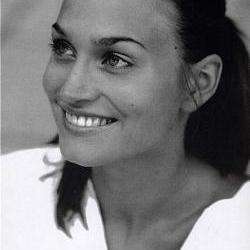Hamlet, the first of a series of three Shakespeare-inspired offerings from Theater an der Wien this season, is not the Thomas Ambroise 19th-century attempt to mould the Shakespearean tragedy into an opera, which manages to retain a place in the canon despite its obvious weaknesses, but instead a freshly commissioned production. Intelligently, in an attempt to free themselves from the pressure involved in taking on this monolith, librettist Thomas Jonigk and composer Anno Schreier pulled from themes and characters from Shakespeare’s Hamlet as well as from the related Histoires tragiques of Francoise de Belleforest und Saxo Grammaticus’ Gesta Danorum. The result is a very smart, dark and fascinating interpretation of Shakespeare’s characters which will delight literary buffs, but which – thanks to the direction of Christof Loy and strong casting – still contains enough raw emotion, sex and intrigue to appeal to those less familiar with the Bard’s work.
Jonick’s Hamlet focusses on the theme of being trapped – and the phrases “Da muss ein Ausweg sein” and “Es gibt keinen Ausweg” (there must be a way out/ there is no escape) and variations thereof appear throughout the libretto like a leitmotif. Each character is completely confined, either searching in vain to escape from their own fates or bemoaning the lack of that possibility. This Hamlet resembles Shakespeare’s original in terms of his depression and suicidal tendencies, but lacks any of his paradoxical, brash heedlessness. Though beautiful to watch and listen to, Hamlet (the strong baritone Andrè Schuen) is interestingly the least memorable of the main cast. He is simply the figure around which the action (and inaction) seems to revolve. Even of Hamlet's famous monologues is stripped from him by Schreier – the text “Sein oder nicht sein” sung hauntingly and hollowly by the chorus instead.
Marlis Petersen is such a strong dramatic presence that without a program one might assume the opera was named “Gertrude”. She is the love interest of every male character – including her own son (the Oedipal complex is strongly in play). Gertrude here is doomed to repeat her own behaviours, both creating and undoing three different Hamlets (the final one her unborn child) and staying perpetually stuck in her role as unhappy wife of the king. Claudius, personified brilliantly by Bo Skovus, is a maniacal murderer, disturbed not by his own dastardly deeds, but by his own lack of remorse. He begs Hamlet to end him, and when the prince fails, falls back into his role of the murderer with verve.
Ophelia, strongly portrayed and beautifully sung by Theresa Kronthaler, is a prostitute who services, or has serviced, both Hamlets as well as Claudius, who poisons her at Gertrude’s jealous behest at the close of the first act. Rounding out the charismatic and well-cast leading roles are the figure of a Pastor, strongly sung by tenor Kurt Streit, and of deceased Hamlet senior, here a speaking role charismatically and effectively realized by Jochen Kowalski. Kowalski offers the only bit of comic relief this dark tale has to offer, wryly commenting in both word and arch of eyebrow on the goings-on of the living. Through him, we learn that the life of the dead differs little from that of the living; even young Hamlet’s desire to escape his fate through death would offer no relief. Indeed, “Es gibt keinen Ausweg”.
The Arnold Schoenberg Choir seems to get better every season, and has decisively thrown down the gauntlet as the choir to aspire to this season. Its function was similar to that of the Greek Chorus, commenting on the action and prophesying the future, unheard by – and invisible to – living protagonists. Its appearances bookend the production in gorgeous Tudor garb and styling (Johannes Leiacker), appearing otherwise as party guests, funeral-goers etc. As the rest of the cast are dressed in modern wear, I rather liked the touch of the Tudor-Greek chorus as a nod to the Bard’s, and would have been content to see them remain so styled for the entirety of the evening.
Musically, Anno Schreier’s score bears little reproach. Classically structured into arias, ensemble and chorus numbers, his harmonic language is freely modern, and his penchant for dark, low scoring in this work keeps the low woodwinds, strings and brass happily occupied and maintains beautiful tension throughout. Clearly Schreier knows how to write for the voice as well; not only are some of the ensemble numbers stunning, but unlike many of his contemporaries he never inappropriately covers the principals with over-enthusiastic instrumental textures. Credit for balance and musical efficacy must naturally be shared with conductor Michael Boder as well as the ORF Radio-Symphonieorchester Wien who sounded absolutely marvellous.
Bravo to the TAW for taking on the Bard successfully! I look forward to Part Two of its Shakespeare trilogy.




